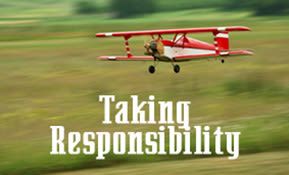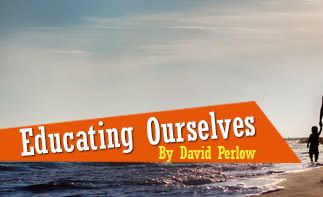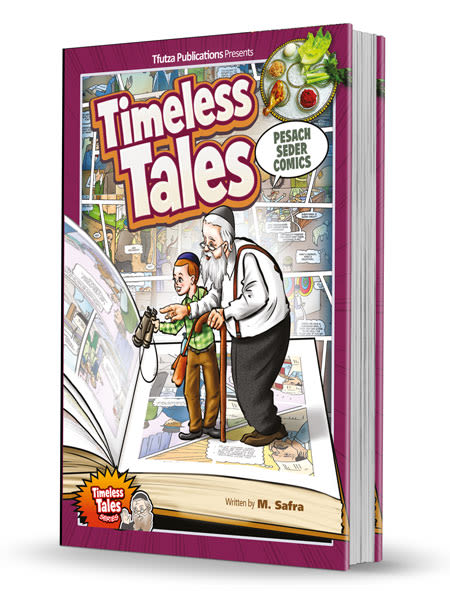
Training a Wild Pony
A child cannot easily overcome his evil inclination and misbehaves as a consequence. His parents must help him, patiently teaching him how to win the battle...

Translated by Rabbi Lazer Brody
Parents tend to reprove their children when they do not succeed and even shame them, G-d forbid. Not that they are cruel, because they treat themselves in like manner. Obviously, they use the same destructive 'methods' on their children.
Tearing oneself down or chastising a child is both cruelty and the counsel of the evil inclination. Educating children must be a positive act – building the child, not breaking him. A parent must constantly remind a child of his good points and encourage him. For example: "Don't be upset that you haven't succeeded this time; let's pray to Hashem, and wait and see how He'll help you in the future!"
A child has an enormous evil inclination, as the Torah says in Genesis 8, "For the inclination of a man's  heart is evil from his youth." The Book of Job compares a child to a wild donkey. The child therefore cannot easily overcome his evil inclination and misbehaves as a consequence. His parents must help him, patiently teaching him how to overcome his evil inclination without breaking him down.
heart is evil from his youth." The Book of Job compares a child to a wild donkey. The child therefore cannot easily overcome his evil inclination and misbehaves as a consequence. His parents must help him, patiently teaching him how to overcome his evil inclination without breaking him down.
Just as the child has an evil inclination, so do his parents. They may choose the harsh option of frequent chastisement or even willfully break his spirit, as if they were training a wild pony. But there is a better way, to encourage the child and show him that he also has a good inclination, which he'd be smart in following. Parents can say, "You usually behave very nicely. But now, the evil inclination has gotten the better of you. Let's ask Hashem for help so that next time you will overcome it."
In one way, a child is like a miniature adult. Just as an adult has all kinds of challenges every single day, so does the child. Parents must be attentive and sensitive to their child's current emotional condition. They must know when to be lenient and when to overlook a passing fault, spending their energies on encouragement rather than on reprimanding.
The Torah commands us to judge every person favorably. The Torah is not talking about someone who is acting properly, for if he is visually doing the right thing, there's no need to judge him favorably. His deeds are already good. Instead, the Torah is referring to someone who is having a difficulty or a setback in life; if this person's behavior or deeds are unseemly, we must search for the mitigating circumstances. Even if one's deeds are not what they should be, the Torah commands us to judge him favorably.
Our children deserve to be judged fairly and favorably. Many parents forget that their children are also humans, protected by the laws of Torah. A parent transgresses by applying stern judgment to a child while ignoring relevant mitigating circumstances. We all know how to justify our sometimes-skewed behavior, but when it comes to our own children, we forget to give them the benefit of the doubt. That's a double-standard pitfall. Obviously, it is a terrible mistake to think that a child's inappropriate behavior is the result of premeditated evil.
Have you ever wondered why children prefer to spend time with their friends rather than with their parents? Simply speaking, their friends understand them and judge them favorably, while their own parents are critical and abrasive. Every parent must realize that just as he relates to his friends calmly and judges them favorably, so should he relate to his children. His children will then enjoy spending time with him.
Teaching our children to cope and contend with disappointments and failures helps them become great. Constant success is a figment of people's imagination. Our spiritual giants certainly had their share of difficult challenges and tribulations, suffering hardships and setbacks all along their road to greatness. Only their perseverance in the face of adversity led to their reaching the heights of achievement.
This is why it is very important to teach a child that no one succeeds all the time; one need not be despondent over failure. Parents must be careful not add to a child's anguish after he suffers a setback.
In Rebbe Nachman's famous tale, "The Simple One and the Clever One," which is extensively elaborated on in our book The Garden of Wisdom, a simple, not-so-talented shoemaker surpasses a flashy and intelligent doctor. It's not our native intelligence, beauty, riches or physique that bring us success and happiness, but focusing on our good points and rejoicing with what we do have in life. Looking at our children's particular good points will help them be happy and successful too. May they all grow in strength to Torah, chuppa and good deeds, amen!











Tell us what you think!
Thank you for your comment!
It will be published after approval by the Editor.